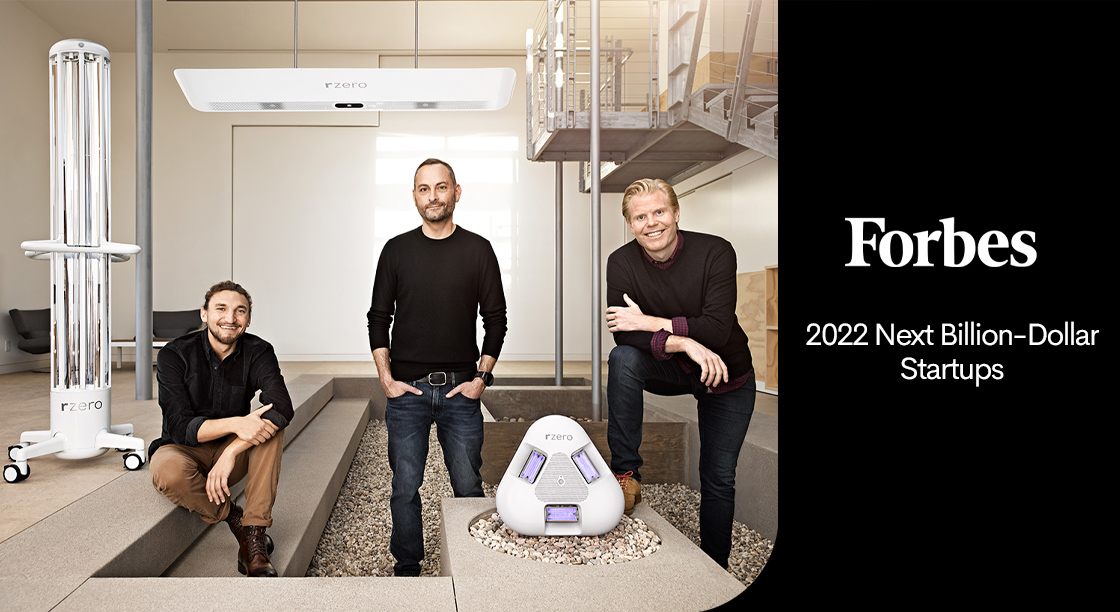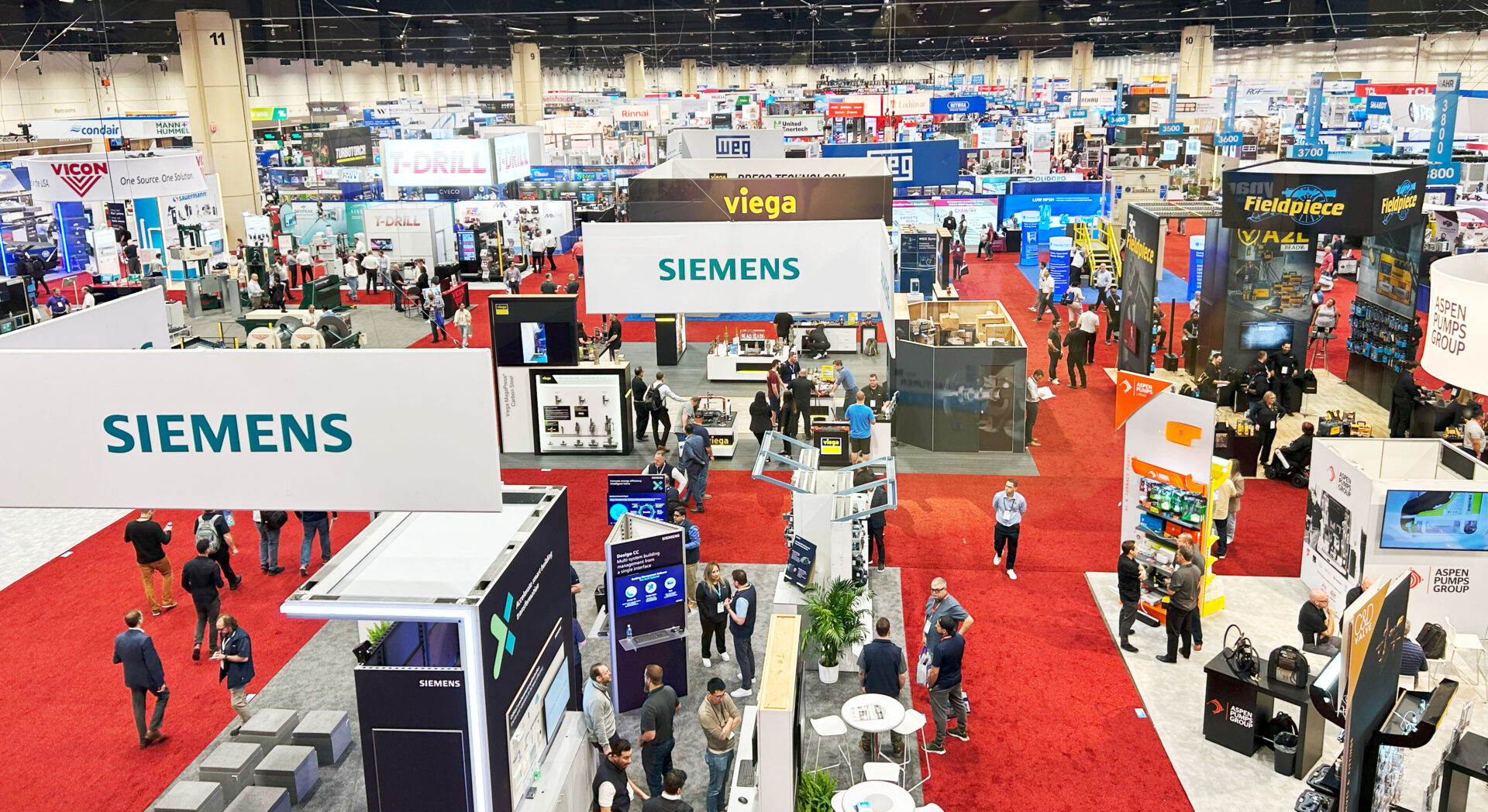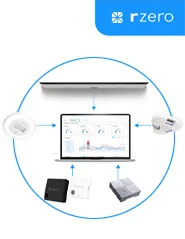
R-Zero Named to Forbes’ 2022 Next Billion-Dollar Startups List
As humans, we spend 90% of our lives indoors. Yet for decades, the built environment has been optimized for energy efficiency, instead of people. And while society has made strides in ensuring the water we drink and the food we eat is safe — the indoor air we breathe 18-20,000 times per day has long been ignored. Today demands a paradigm shift.
R-Zero was founded in April 2020 — during the early days of the global pandemic — on the insight that the built environment has been dominated by commodity chemical manufacturers, and void of technology and innovation.
Our founders, Grant Morgan, Ben Boyer, and Eli Harris, knew technology could not only transform an archaic industry, but fundamentally improve the way we approach the built environment. What started as an effort to democratize access to disinfection at a time when we needed it most, quickly turned into a mission to deliver a new way forward.
From the beginning, we’ve operated as if lives were at stake — because they literally were. We knew the faster we could manufacture and ship product, the more people we could help. As a result, in the two short years since R-Zero was founded, we’ve accomplished more than many do in a decade.
We’ve grown from three founders to a globally distributed team of over 170, across 15 countries. We’ve launched three category-defining, award-winning products. But, most importantly, we’ve helped thousands of organizations protect what matters most: their people.
Today, R-Zero’s technology is enabling safer, healthier, and more productive shared indoor spaces for hundreds of thousands of people across the country. Over 1,000 school campuses rely on our sustainable disinfection products to create safer indoor learning environments for teachers, students, and staff. Our technology is also protecting residents and staff across hundreds of senior care communities, increasing performance conditions for professional sports teams across the NFL, NBA, NHL, and MLS, helping return-to-office for small businesses to Fortune 500s — and so much more.
That’s why we’re thrilled to announce R-Zero has been named one of Forbes’ 2022 Next Billion-Dollar Startups.
Today, R-Zero’s intelligent technology platform is the first designed to create buildings that actively work to keep occupants more productive. In our vision for the future, technologies like ours will be a standard part of every building — ultimately improving the quality of life, for all.
R-Zero’s business sits at the intersection of a unique opportunity: where social good meets bottom line. We are incredibly proud of the business we’ve built to date, and of the impact we continue to have on our customers and their communities. But we’re just getting started.
Read the full story here: This Startup Wants To Bring Disinfecting UV Light Into “Every Physical Space”
Interested in joining the next phase of our journey? We’re hiring.
More posts you might like
-

3 Key Takeaways from AHR Expo 2025: What’s Shaping the Future of HVAC
The 2025 AHR Expo brought together HVAC industry leaders, innovators, and professionals to showcase the latest advancements in heating, ventilation, and air conditioning. Here are the key insights that stood out from our team on the ground. 1. Smart Technology is Enhancing, Not Replacing, Traditional HVAC A significant shift observed at this year’s expo is […]
-

Webinar Recap: Redefining Energy Efficiency
As commercial energy costs continue to rise, building operators are looking for faster, cost-effective solutions to reduce waste and improve efficiency. Heating, Ventilation, and Air Conditioning (HVAC) systems account for nearly 60-70% of total building energy consumption, making them one of the largest opportunities for savings. However, traditional HVAC systems often operate on outdated schedules, […]
-

Wildfire Smoke: Understanding the Impact on Indoor Air Quality
As we face yet another intense wildfire season, with significant events already impacting regions across the country, the challenges to air quality, both outdoors and indoors, are more pressing than ever. Wildfires contribute up to 50% of “ultrafine” particles in the air; tiny pollutants that can travel hundreds of miles and infiltrate indoor spaces, affecting […]

